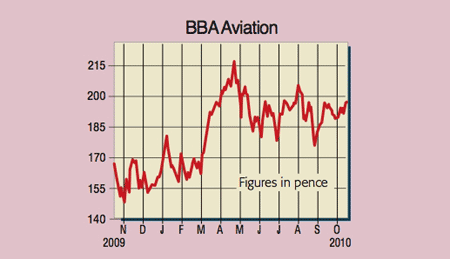
There’s only one story on Wall Street right now. What’s going to happen to the dollar after the Federal Reserve starts printing money again via quantitative easing (QE)? My guess is that by the end of 2011 the greenback will have devalued against most major currencies by between 10%-15%.
Yet this could be just the start. Until the Fed decides to hold fire, the greenback will continue to sink. There is no yield to support it, and the US is rapidly adding to its budget deficit of $13.6 trillion. This is equivalent to a staggering $43,800 per citizen or $122,000 per tax payer. That’s even worse than in Britain (we owe £15,291 per person or £33,114 per employee).
Of course, if you’re a US exporter like Symantec, then dollar weakness is good news as product sales become cheaper in foreign territories. But for UK businesses with heavy exposure to Uncle Sam – think ARM, GSK and BAE Systems here – then this could be a major problem. Another stock that would fall foul if Ben Bernanke opened the monetary sluice gates is BBA Aviation. It derives around three-quarters of its profits from America, meaning that for every 1 cent fall in the currency, EBITA tumbles by £500,000. Ouch.
Don’t get me wrong. BBA is not going bust anytime soon. It has a strong management team, is cash generative and enjoys defensive positions in its addressable markets, namely those in which the firm provides refuelling, cargo handling, engine repair and de-icing services to aircraft owners, along with supplying engine components, landing gear and hydraulic systems. Customers include individuals and corporates (65% sales), commercial airlines (25%) and the military (10%).
BBA Aviation (LSE: BBA), rated a STRONG BUY by Arbuthnot Securities
In the first half of this year, turnover rose 6.5% to £587m with the bottom line further boosted as the firm’s operational gearing (30% of costs are fixed) kicked in (to learn more about operational gearing, see www.moneyweek.com/tutorials.aspx). Indeed, the chief executive, Simon Pryce, said that the “aviation industry had emerged from the downturn”, and that as a result of good cost control and working capital management, BBA’s net debt had been reduced to £406m as at the end of June from £554m in December 2008.My concerns with the stock relate to the big-picture issues beyond the management team’s control, such as the difficulties that will be generated by a slowing US economy, higher fuel prices, softening corporate jet demand and a weaker currency.
The City expects 2010 revenues and underlying earnings per share (EPS) of £1.1bn and 16.5p respectively, rising to £1.2bn and 18.3p (up 11%) next year, which to me looks stretching. I would value the group on a through-cycle EBITDA multiple of seven, which after adjusting for the debt, generates an intrinsic worth of around 150p a share.
Income-seekers highlight the company’s 4% yield as providing support for the rating. However, this is a double-edged sword, because if the firm ever had to trim the payout, then City sentiment would go up in smoke. Time to take flight ahead of the storm.
Recommendation: SELL at 195p (market cap £840m)
• Paul Hill also writes a weekly share-tipping newsletter, Precision Guided Investments